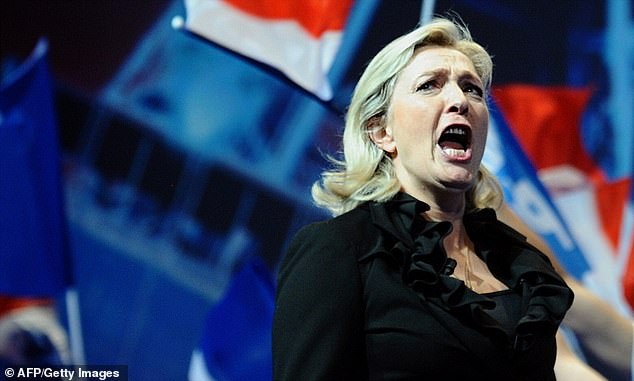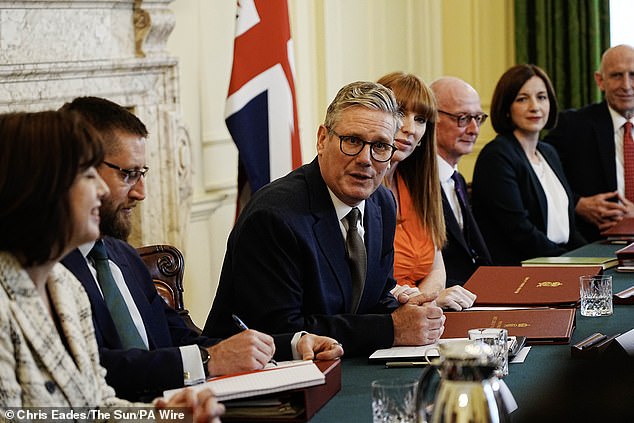As Labour moves forward with implementing its “growth” agenda, there will be one overarching idea guiding Rachel Reeves. As a former Bank of England economist, she recognises more than most that the formidable power of bond market vigilantes – investors who seek to bully wayward governments for their own benefit – has to be her guide.
Indeed, if Liz Truss and her chancellor Kwasi Kwarteng had recognised this two years ago, it is entirely possible that Keir Starmer and Reeves would still be in the opposition benches.
Market-driven economic catastrophes are rarely forgiven by the electorate, especially if they dramatically increase the cost of consumer credit and mortgages.
Reeves’ determination to stay the course in the face of rising public borrowing and mounting debt and the mantra that all manifesto promises must be “funded and costed” is no coincidence.
This is the hard financial lesson that France and the United States should keep in mind amid their current election fever.
As Donald Trump’s star rises in the opinion polls amid horror at Joe Biden’s faltering mental capacity, US bond markets are emerging from complacency.

The prospect of a Marine Le Pen-backed administration with a 28-year-old rookie prime minister, Jordan Bardella, has sent shivers through European bond markets.
France’s far-right National Rally party may believe the eurozone will provide a safety net no matter what happens when votes start to be counted in the second round of parliamentary elections tonight.
As a result, he believes the country can avoid a Truss-style tantrum. There is no such guarantee, as the Greek people, who endured a horrendous period of austerity after the debt implosion of 2008-2010, will attest.
Similarly, as Donald Trump’s star rises in opinion polls amid horror at Joe Biden’s faltering mental capacity, US bond markets are emerging from complacency. If US bonds, known as Treasuries, take a hit, the dollar and Wall Street stocks, underpinned by inflated valuations of the “Magnificent Seven” technology stocks, could take a serious hit.
The shifting of tectonic plates could well trigger a global market collapse. The rich G7 countries, which have run up huge debts to pay for Covid-19 lockdowns, the energy crisis triggered by Russia’s war with Ukraine and hefty climate change subsidies, don’t have much of a safety cushion. With the exception of Germany, all are saddled with mountains of debt that are enormous when measured relative to national output.
In fact, Britain looks far less vulnerable to another bond market meltdown than other countries going to the polls. Bond yields – the interest rate a government must pay to attract lenders and therefore a key indicator of how risky markets view debt as being – have been falling. With inflation back to the 2% target, the Bank of England looks set to cut interest rates from the current 5.25% as early as next month.

Britain looks like an oasis of calm amid turmoil in French and US bond markets, writes Alex Brummer
The underlying budget deficit – the gap between a government’s day-to-day spending and its tax revenues – in the UK amounts to 1.4 per cent of national output, but in France it is an alarming 5 per cent.
Ratings agency S&P says pressure on the Labour government to spend on crumbling public services and infrastructure is “the elephant in the room”.
But in France, the prospect of a government backed by Marine Le Pen and featuring a 28-year-old rookie prime minister, Jordan Bardella, has sent tremors through European bond markets. President Macron has been trying hard to unify the opposition against the populist right. The price of his political manoeuvring is a coalition that includes the radical far left of Jean-Luc Mélenchon, who champions ideas of large-scale spending.
Bardella’s own promise to scrap VAT on fuel would cost the French treasury almost £10bn. Taking a cue from Jeremy Corbyn’s magic money tree, the National Rally also promises to increase welfare spending, nationalise roads and – in a nod to free-market capitalism – cut income tax.
Before today’s election, the yield gap – the difference in profitability between benchmark German bonds and French bonds – had widened by 0.7 percentage points. That may be just the beginning. Shares on the Paris Stock Exchange – which for a time outstripped the London Stock Exchange in total market value – have fallen by 6% in the past week, in what could be the start of a fall.
The United States is far from immune to bond market turmoil or a run on the dollar. Republican administrations are generally thought to be better for public finances because of their fundamental belief in balanced budgets.
However, the shift in public opinion toward convicted felon Donald Trump since Biden’s failed debate in Atlanta is causing consternation on Wall Street.
The yield on 10-year US bonds has risen to 4.5 percent on expectations of a Trump victory.
The disobedient former president’s campaign pledges to impose tariffs on foreign imports, cut taxes and confront the Federal Reserve for keeping interest rates too high for too long are beginning to sow global panic.
This comes at a time when China, among other countries, is buying up all the gold it can get its hands on as it no longer wants to hold hundreds of billions of dollars worth of US Treasury bonds in its reserves.
Britain appears to be an oasis of calm amid turmoil in bond markets in France and the United States.
In fact, several mortgage companies felt confident enough to cut the cost of fixed-rate mortgages on election day. Tracker Rightmove shows the average five-year home loan fell below 5 per cent.
Starmer and Reeves, despite the gloomy rhetoric, are in relatively benign markets. The big danger is that, in an effort to fund a bigger state, Labour will raise taxes so much that it will kill off a nascent recovery.
Some links in this article may be affiliate links. If you click on them we may earn a small commission. This helps us fund This Is Money and keep it free to use. We do not write articles to promote products. We do not allow any commercial relationships to affect our editorial independence.
(tags to translate)dailymail


